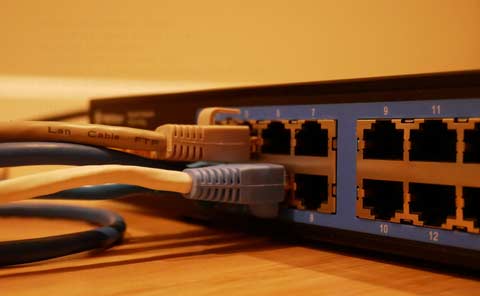If you’re unfamiliar with what the ubiquitous “Cloud” is, it’s really important to know. All data available on the Internet, regardless of its nature, is stored on large computers known as servers, which are located all over the world. In terms of security, these servers are among the safest in the world, and they make up a large enough infrastructure when pieced together that they call this network “the Cloud”. You might think that the military or the government would have the most secure servers, but that isn’t the case at all — not even close.
 During the recent period in which nearly every aspect of computing was being stored on off-site servers and made available to authorized users on virtually any device anywhere in the world, the term “cloud” was coined. Desktop computers, laptop computers, tablets, and smartphones are all capable of accessing the same data and applications in the cloud because of the Internet. Each device that is connected to the cloud acts as a terminal that connects to a variety of servers that are housed within the cloud. It’s the kind of thing that can help anyone feel safer if they have experienced corrupted hard drive symptoms before.
During the recent period in which nearly every aspect of computing was being stored on off-site servers and made available to authorized users on virtually any device anywhere in the world, the term “cloud” was coined. Desktop computers, laptop computers, tablets, and smartphones are all capable of accessing the same data and applications in the cloud because of the Internet. Each device that is connected to the cloud acts as a terminal that connects to a variety of servers that are housed within the cloud. It’s the kind of thing that can help anyone feel safer if they have experienced corrupted hard drive symptoms before.
The Unhackable Cloud
Hacking the cloud is a quite a bit more difficult than hacking a PC or even a mainframe, for obvious reasons. It is not only possible that all of the data is encrypted in certain parts of the cloud, but it is also possible that it is spread across multiple servers in multiple cities on RAID arrays. However, just as with any data stream, there is a front door through which you can enter. You can gain access to all of your data in the app or storage part of the cloud if you have the correct user name and password. The majority of the time, anyone looking to hack a cloud is looking for the key to your front door. They may not attempt to compromise the cloud itself, but rather the device you use to access your portion of it. And, of course, you should never underestimate a hacker’s ability to discover all of the back doors in your system.
Security Protocols Rule The Day
Typically, social engineering, or attempts to “con” technical support people into revealing information such as passwords and account numbers has been caught on to, and some time ago, actually. A hacker simply cannot do this anymore without access to a wide array of personal information already, and organizations that run cloud applications are always very cognizant of schemes and scams that take place on a daily basis. So what does this mean? Well, despite the few random anecdotal stories to the contrary, the cloud is pretty safe. We have been using this thing for ten years plus at this point, and a lot of the kinks have been worked out.
The Cloud Kills Data Loss, Dead
So, feel free to use the cloud to back up your hard drives. It’s an excellent idea, and some applications, particularly things like Google Drive, or other miscellaneous backup services, have apps that make backing critical data extremely easy. Like, “push a button and walk away”-easy. What’s more, many have schedulers as well that ensure that even when you forget to back up your drive, it does it for you.
In 2022, your company should have a protocol in place for using cloud computing resources for things like critical data backups. External hard drives and local servers are fine, but as with anything data, redundancy is the grail. The more redundant you are with backups, the less chance you will have to rely on a backup that has failed.
Without a doubt, the cloud is a fantastic tool. And, as it’s been in action for a while and isn’t going away anytime soon, you should use it to avoid hard drive failure. Just do it!
